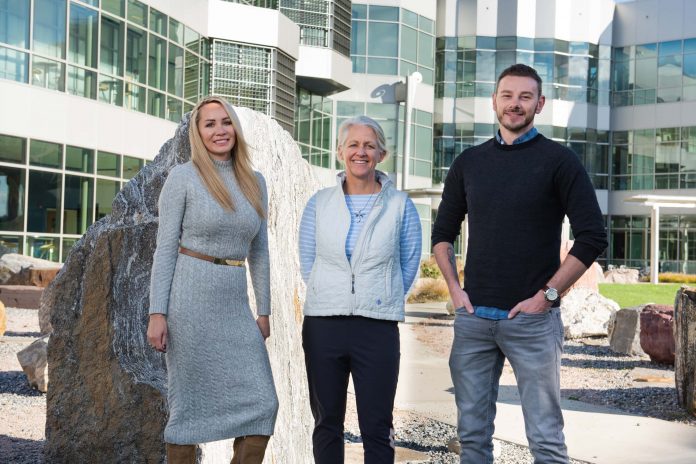A team of Southern faculty members is headed to the United Nations International Conference on Climate Change (COP26) in Glasgow, Scotland, to observe the deliberations that will seek to avert a growing environmental crisis and pave the way for a greener world.
Assistant Professor of Environmental Science Dr. Miriah Kelly will be joined by Assistant Professor of Sustainability Dr. Stephen Axon and Sustainability Coordinator Suzanne Huminski in Scotland for five days, departing for Glasgow on Nov. 7.
Each has their individual goals in attending the conference, serving a collective goal of educating the campus community about the global climate emergency.
“We are at a pivotal moment in time where climate issues are creating massive social and ecological impacts around the world,” said Kelly. “Globally, there is mounting pressure for governments to act on climate change, and these negotiations are key to framing the agreements and commitments that are made.”
The faculty-led trip and observer status comes after Southern became the first university in the nation to declare a climate emergency in 2019. Observer status is a highly prestigious designation for any higher education institution to hold.
“Being officially recognized Observers of the United Nations Framework Convention on Climate Change (UNFCCC) and participants in COP26, further demonstrates to our students and our community that we are dedicated to participating actively in addressing the global climate crisis, “ Kelly said.
A major reason why the university was chosen to send a delegation to COP26 was Southern’s “team-based approach to sustainability as the foundation of our Climate Leadership Commitment,” Huminski said. “Southern has reduced its carbon footprint for buildings by 56% since pledging carbon neutrality. Our pledge says we’ll achieve this goal as soon as possible and by 2050 at the latest, and we’re ahead of our 2030 target.”
Global and climate leaders such as U.S. President Joe Biden, Sir David Attenborough, and activist Greta Thunberg have already attended the conference. Climate change has evolved from a fringe topic into a global priority, and Southern has taken a large responsibility in addressing those concerns as part of its social justice mission.
“Understanding and advocating for stronger climate policy means addressing climate inequities and injustices, not just for our own community but for every community,” said Axon.
The overarching goal set by COP26 organizers is finalizing the “Paris Rulebook” – mandates established when the Paris Climate Accords were signed in 2015. Those include investments in renewable energy, expanding purchase options for electric vehicles and putting an end to coal production and burning.
COVID restrictions precluded Southern students from attending this year’s conference, but future plans include bringing students along to the International Conference on Climate Change.
Julia Stevenson, a second-year graduate student in the Department of the Environment, Geography, and Marine Sciences, has been working on her master’s thesis concerning COP’s evolving focus on the ocean and coastal effects of climate change.
“While students are unable to attend COP26, SCSU remains represented through three faculty delegates who will be conducting research, learning from the community, and advocating for climate action,” said Stevenson. “It is crucial that students bear witness to these historical negotiations, decisions, and promises that are determining what kind of future we, along with billions of others across the globe, will have.”
There will be an opportunity for the Southern and wider communities to connect with the faculty team in Scotland through a live streaming event from COP26 on Wednesday, Nov. 10 from 10 a.m. to 11 a.m. in the Adanti Student Center Theater.
Additionally, a website has been created where faculty will be sharing daily vlogs, providing students and others with insight on the many conversations occurring in Scotland. Students, staff, and faculty are asked to sign the Climate Emergency Declaration to affirm their commitment to climate change.


